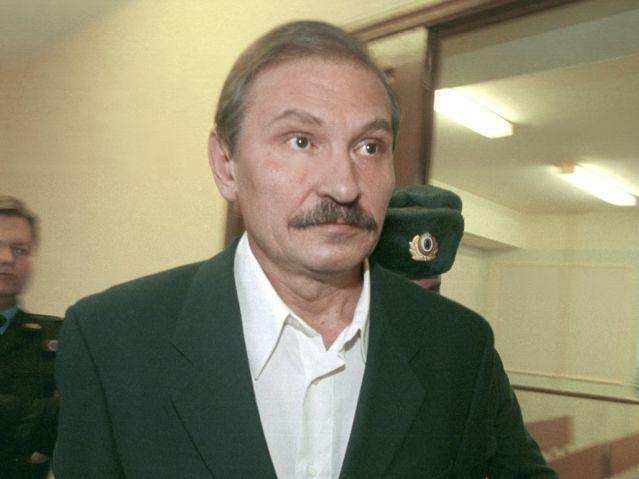Putin critic found strangled one week after Salisbury attack 'previously believed he had been poisoned by Russians'
Paramedic Keith Carr said Mr Gluskov had been drinking with two Russians the night before he was treated for suspected poisoning

Your support helps us to tell the story
From reproductive rights to climate change to Big Tech, The Independent is on the ground when the story is developing. Whether it's investigating the financials of Elon Musk's pro-Trump PAC or producing our latest documentary, 'The A Word', which shines a light on the American women fighting for reproductive rights, we know how important it is to parse out the facts from the messaging.
At such a critical moment in US history, we need reporters on the ground. Your donation allows us to keep sending journalists to speak to both sides of the story.
The Independent is trusted by Americans across the entire political spectrum. And unlike many other quality news outlets, we choose not to lock Americans out of our reporting and analysis with paywalls. We believe quality journalism should be available to everyone, paid for by those who can afford it.
Your support makes all the difference.A murdered exile believed he had previously been poisoned by mystery Russians who brought him champagne, a paramedic who treated him said.
Former Aeroflot deputy director Nikolai Glushkov was found apparently strangled in his home in New Malden, south-west London, a week after the Novichok poisoning of the Skripals.
Paramedic Keith Carr on Friday told how he treated Mr Glushkov in November 2013 for suspected poisoning, after the exile shared drinks with two men from Moscow in a Bristol hotel.
The suspected poisoning came some six months after Mr Glushkov accused the Kremlin of murdering his friend and Vladimir Putin critic Boris Berezovsky.
The Guardian reported that detectives are now reinvestigating that night in the Grand Hotel as part of the murder inquiry.
Mr Carr, then working with South Western Ambulance Service, said he responded to a report that Mr Glushkov had collapsed on the carpet the morning after the drinks.
"He had been visited by two Russians the night before," Mr Carr, now 71, told the Press Association.
"They (the visitors) brought champagne. They drank the champagne together.
"He woke up on the carpet the next day. He had carpet burns to his face and he was unsteady."
Mr Carr said his patient had an abnormal heart rhythm, which was very fast.
"In 47 years as a paramedic I've never had anybody deliberately poisoned so it wasn't foremost in my mind until he said, 'I think they poisoned me'," Mr Carr, of Bristol, said.
"I thought it was a bit far-fetched but when I saw the cardiac dysrhythmia I thought something's wrong, it's not like any normal heart rhythm, so somebody's got to him."
Mr Glushkov was treated in Bristol Royal Infirmary Hospital.
The disclosure comes after police named two men said to be Russian military intelligence agents as suspects in the nerve agent poisoning of former spy Sergei Skripal.
Counter-terrorism police led the murder inquiry after Mr Glushkov was found dead on March 11.
Mr Glushkov claimed political asylum in the UK after Russia accused him and Mr Berezovsky, who died in March 2013, of a criminal conspiracy in relation to Aeroflot.
A Scotland Yard spokesman said the "incident" in Bristol in 2013 was a matter for Avon and Somerset Police, and added: "We are not prepared to discuss specific lines of inquiry in regards our investigation."
Press Association
Join our commenting forum
Join thought-provoking conversations, follow other Independent readers and see their replies
Comments